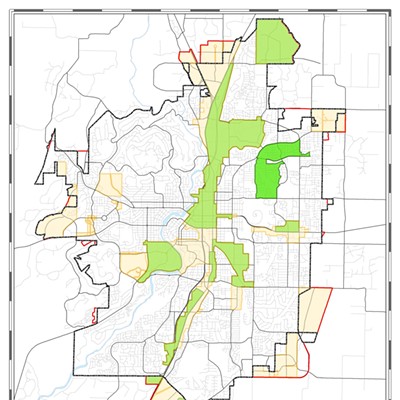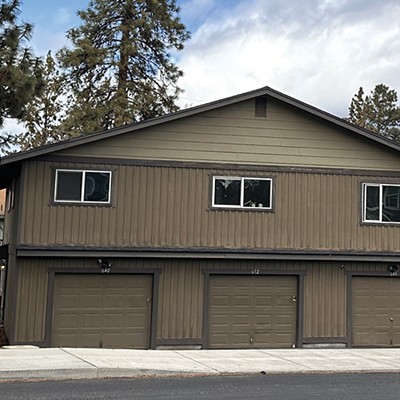Drastic Times Call for Radical Measures
By Source Staff
Portland has been in the news a lot lately for its struggles with affordable housing. And while there's no magic trick to finding a sufficient quantity of housing middle and low-income folks can afford, the city has taken steps recently to address its housing shortage that we would be wise to adopt locally.
First, the city recognized it has a problem. It may seem like a meaningless gesture, but you can't fix a problem you don't see. So, Portland Mayor Charlie Hales declared a State of Emergency for housing and homeless in September. But it came with some teeth. The declaration allows Portland City Council to wave zoning requirements, turn city-owned buildings into homeless shelters, work with the Governor's office to obtain waivers of state building codes to create more shelters, and more.
For those who may say, Bend's not Portland, well, that's true. For one, Bend's rental market is much tighter than Portland's. While Portland's 3 percent vacancy rate makes it the third tightest urban market in the country, Bend comes in at around half a percent. A 2014 survey by the Central Oregon Rental Owners Association found just a single—that's right, one—apartment vacancy. The other 16 were single family homes.
But that just means that the need for action is that much greater. Bend Affordable Housing Manager Jim Long has been calling the lack of housing (affordable and otherwise) in Bend a "crisis" for years, but City Council has not yet made any such formal declaration. Acknowledging the weight of the problem would be a wake-up call to those who argue we must simply wait for the market to sort itself out, or that if we simply provide enough incentives for developers, everything will fall into place. That kind of thinking isn't rooted in reality. There will always be a demand for higher-end single family homes in Bend because well-to-do professionals and retires continue to find Central Oregon a desirable place to relocate. And it's hard to blame developers for catering to a well-heeled clientele. But the demand for lower cost housing, for small units suitable for singles and childless couples, is undeniable.
Council has taken some longer-term steps toward addressing the housing shortage, through measures like adopting a cottage code, allowing the waiver of system development charges for affordable housing projects, and making it easier to build accessory dwelling units. But these efforts fall short of addressing the immediate emergency.
At last week's City Council meeting, Councilor Barb Campbell took a step in the right direction by proposing that the City adopt an ordinance requiring landlords to give at least 90 days notice before a rent increase or eviction, something Portland also recently adopted. City Council should make this ordinance a priority. While it won't get people into homes, it can help prevent some of the many rent-burdened Bendites from falling through the cracks as they attempt to absorb a hefty increase or find a new place to live.
And finally, Bend should follow Portland's lead in finding a way to incorporate inclusionary zoning. Councilor Nathan Boddie proposed this idea at a recent council meeting, suggesting that land invited into the city limits through the expansion of the urban growth boundary should be required to set aside some percentage of that land for housing that's affordable to those at or below the median income.
These ideas will all have detractors. But as winter approaches, City Council must not let the voices of developers, contractors, and others who stand to profit from the home-building business overpower the admittedly harder to hear voices of the homeless—and nearly homeless—living in our city.



























